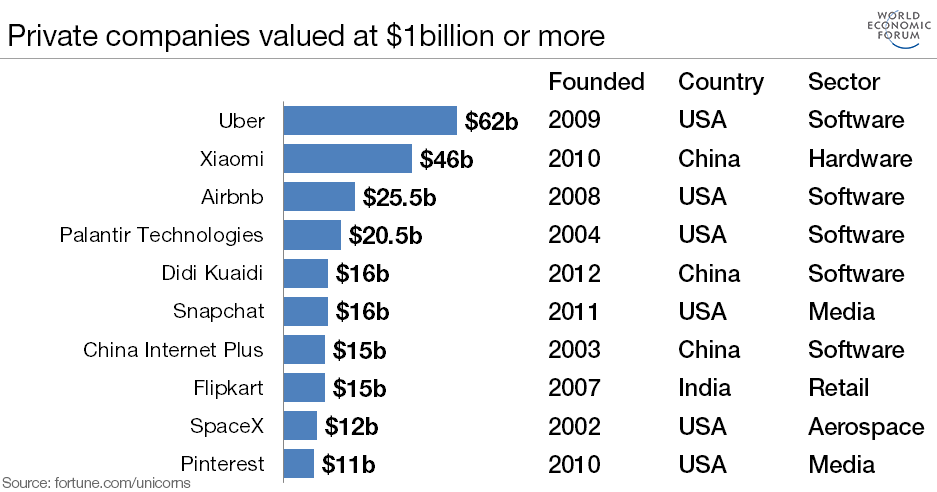Top of the Unicorn Club: these are the 10 most valuable private companies

Snapchat, Uber and Didi Kauidi are all part of the Unicorn Club Image: REUTERS/Eric Thayer
There are some businesses around the world which expand at a dizzying rate. These companies have achieved "hypergrowth", doubling their revenues in less than two years.
In the past few years, the number of companies that have mastered hypergrowth has increased. This is mainly due to the digital transformation of economies, more accessible (and cheaper) capital, and the emergence of new global markets such as the Asian middle class, according to a study from the World Economic Forum, 'Mastering Hypergrowth'.
While companies from a range of sectors are experiencing hypergrowth, unsurprisingly, technology start-ups provide prominent examples of the trend. One example is Finnish mobile games developer Supercell, which recorded a $2.3bn revenue in 2015, just three years after launching its first product.
If a start-up grows quickly enough, it might turn into that mythical and elusive creature: the unicorn, a private company valued at $1 billion or more. There are currently 174 companies on Fortune's Unicorn list, and below are the 10 highest-valued private companies.

Read the full study, Mastering Hypergrowth.
Don't miss any update on this topic
Create a free account and access your personalized content collection with our latest publications and analyses.
License and Republishing
World Economic Forum articles may be republished in accordance with the Creative Commons Attribution-NonCommercial-NoDerivatives 4.0 International Public License, and in accordance with our Terms of Use.
The views expressed in this article are those of the author alone and not the World Economic Forum.
Stay up to date:
Fourth Industrial Revolution
Related topics:
Forum Stories newsletter
Bringing you weekly curated insights and analysis on the global issues that matter.







